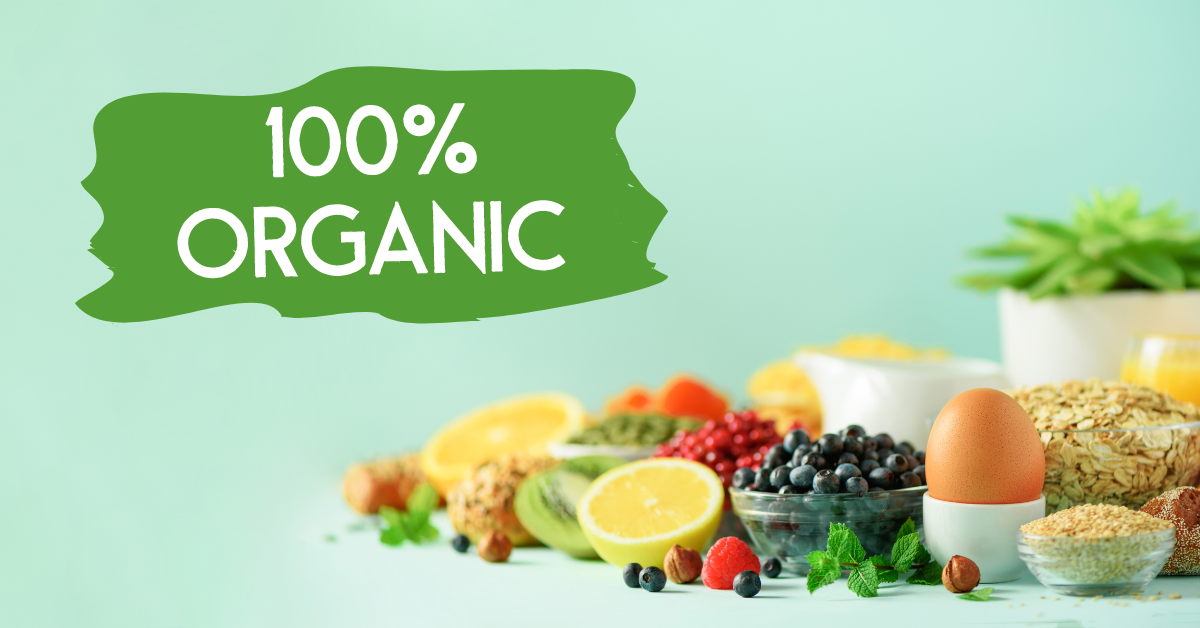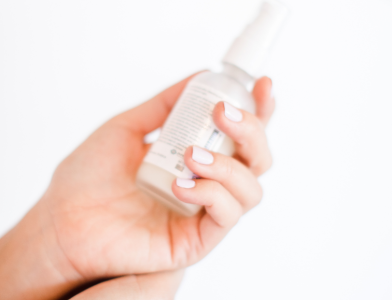In a recent YouTube video, I sat down with food safety and quality systems engineer, Jackie Bowen, MPH who shared valuable insights into the truth about organic food and its significance. As the executive director of the Clean Label Project, a national nonprofit dedicated to transparency in food labeling, she provided important perspectives on the organic food landscape. We delved into key topics such as:
- What is organic food?
- Pesticides and heavy metals in organic goods
- Challenges & limitations of organic farming in the US
- Role of organizations like the Clean Label Project in ensuring food safety
Check out the video now or scroll down to read the summary!
What is Organic Food?
The National Organic Program, a federal regulation under the oversight of the USDA, advocates for an environmentally friendly agricultural approach. It prohibits certain processes, GMOs, and persistent pesticides. Accredited certification agents ensure that products labeled as organic meet the USDA's requirements. Organic options support the environment, small farmers, and reduce exposure to pesticides, which is highly valuable for families.
A recent article published in the journal Pediatrics, emphasized the need for more research to determine the potential risks of GMO foods sprayed with herbicides such as glyphosate and their impact on children's health.
Pesticides and Heavy Metals in Organic Foods
One of the primary concerns we addressed is the exposure to pesticides and heavy metals in organic foods, particularly for children. Organic options significantly reduce pesticide exposure, but challenges persist with heavy metals. Naturally occurring in the earth's crust, heavy metals like arsenic, cadmium, lead, mercury, and chromium can enter food through various processes, including industrial agriculture, mining, and pollution.
Challenges & Limitations of Organic Farming in the U.S.
Organic farming has limitations, and less than 1% of agricultural land in the US is certified organic. This leads to challenges in sourcing organic compost, with conventional compost from industrial animal farming operations introducing heavy metals into organic soils. This raises questions about the practicality and counterintuitive aspects of organic farming practices.
Consumers are often surprised to learn that some organic foods may even contain more heavy metals than their conventional counterparts due to farming practices.
Regulations and Testing: Roles of Organizations Like the Clean Label Project Ensuring Food Safety
While regulations exist for microbial and pathogen contaminants, there is a need for more comprehensive regulations addressing long-term chronic diseases linked to contaminants like heavy metals. Regulations such as AB 899 in the State of California, require mandatory heavy metal testing for baby food products, marking a step toward establishing maximum thresholds. However, there are currently no requirements for heavy metal testing in organic products.
The Clean Label Project as a valuable resource for consumers especially parents of young children. This national non-profit organization certifies brands and products through rigorous testing, providing consumers with information about potential contaminants, including heavy metals, pesticides, industrial solvents, and plasticizer chemicals to name a few. The Clean Label Project's Purity Award signifies products that meet high standards for ingredient quality and safety, offering consumers an additional layer of assurance when making purchasing decisions.
Conclusion
Navigating the organic food landscape involves understanding the benefits and limitations. While organic options reduce pesticide exposure, challenges remain in addressing heavy metal contamination. Organizations like the Clean Label Project play a crucial role in empowering consumers with information and promoting brands committed to food safety. Making informed choices, supporting clean label brands, and advocating for more comprehensive regulations contribute to a healthier and more transparent food system for all.
Check out the Clean Label Project for a list of products who have received the Purity Award




2 thoughts on “The TRUTH About Organic Food: Is it worth it?”